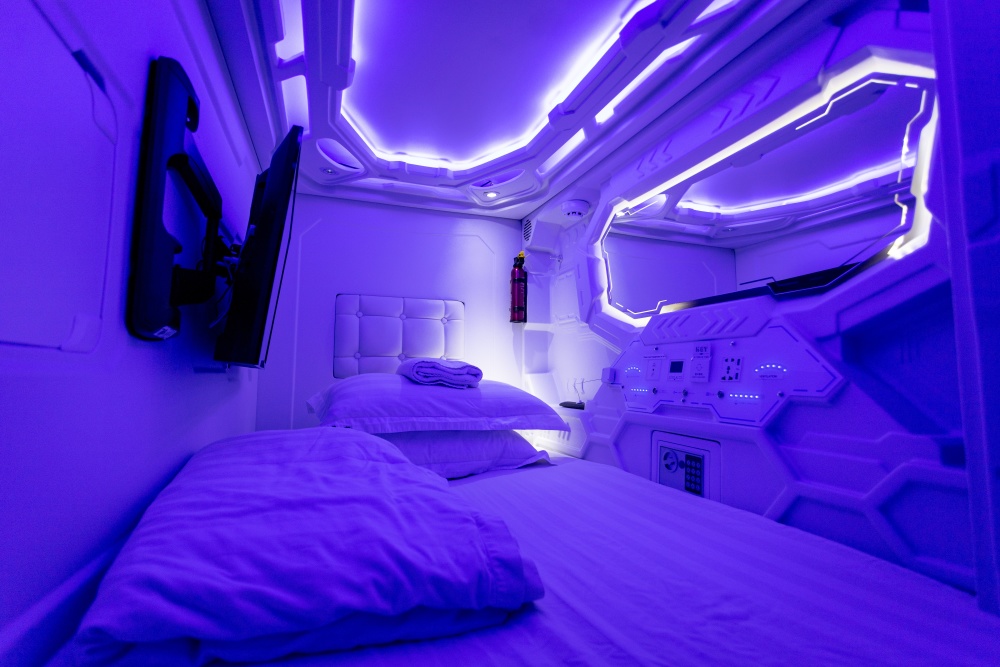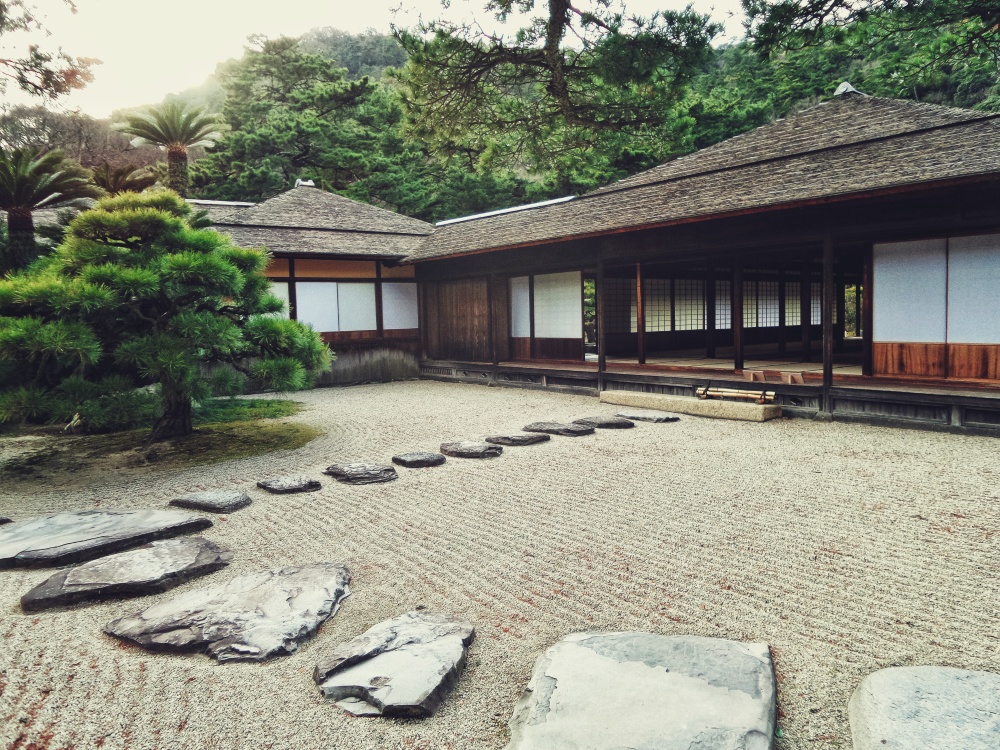Updated April 3, 2025
Airbnb in Japan: Ultimate Guide for 2025
When you travel to a new place, you want to get the most out of your trip.
Yes, staying at a hotel can be convenient, and it’s how people have traditionally handled their accommodations. However, a hotel can feel too impersonal sometimes. With utilitarian rooms and boring art on the walls, hotels can be a far cry from the true local experience.
That’s one reason people have flocked to Airbnb — it’s a great option for anyone who wants to stay in a proper home. Especially if you don’t want to compromise on your living space while traveling.
In this post I’ll tell you everything you need to know about Airbnb in Japan — tips, misconceptions, and even alternatives.
Let’s dig right in.
The Current Status of Airbnb in Japan: Is It Illegal?
One of the most frequent questions I get is, “is Airbnb legal in Japan?” I would like to clarify that yes, Airbnb is completely legal in Japan.
The reason for the confusion around legality is that in 2018, the Japanese government imposed strict regulations regarding overnight stay services in Japan, which are called “minpaku.”
According to these regulations, minpaku managers had to obtain a specific license, which had a set of very strict requirements. This has caused the number of Airbnb listings to drop significantly since then.
Luckily, things are changing now.
New Regulations for Minpaku
The rules are being relaxed each year, and in fact, a recent report even suggests that the Japanese government is getting ready to introduce a new set of regulations.
Up until now, the law required minpaku managers to either be licensed real estate agents, chief administrators of condominiums, or certified real estate business managers. In the event that none of these requirements were met, a business background of 2 years in the field of housing management was required.
An undervalued Yen and the current demand for tourism in Japan are now forcing the legislation to abolish these requirements. According to the newly proposed regulation, these requirements will be lifted, and those who take a simple training course can now become official minpaku managers easily in 2023.
Of course, Airbnb was never really “illegal” in Japan, even after the regulations of 2018, and it will still be legal until the new laws come into effect. Those who had the abovementioned licenses or prior experience were always able to list apartments on Airbnb legally.
Since Airbnb removed all listings in Japan that weren’t by licensed agents, the listings you’ll find on Airbnb are all legitimate, so you don’t have to wait until 2023. However, there’ll definitely be more listings available on the website in the coming year.
Is Japan Still Closed to Visitors?
For people who want to visit Japan, another point of confusion was the travel ban that came into effect at the height of the pandemic.
According to these bans, tourists were only allowed into the country as part of groups, and individual tourism was prohibited. Additionally, only 50,000 people were allowed to enter Japan daily for tourism purposes.
In October 2022, these bans were lifted as well. Tourists can now enter Japan individually, and there’s no daily cap, either.
The country is now anticipating a big tourist boom during the winter season. It comes as no surprise, as Japan has the best snowboarding and skiing pistes in the world. For Japan, winter sports are a big tourist attraction not just during winter but all year round.
How to Pick the Best Airbnb in Japan

Having cleared up the issues regarding the legality of Airbnb and the travel restrictions, let’s now get to the meat and potatoes.
If you’re inexperienced, picking the right Airbnb listing isn’t an easy task. Pictures can be deceiving, and believing every statement in a listing will quickly show you just how many ways the truth can be bent in.
I have collected some tried and true tips and tricks that’ll help you choose with caution so that you can become an Airbnb expert in no time. Here are some of my top suggestions.
Photos Might Not Show the Big Picture
If you’ve taken a look at the Airbnb listings in Japan, you’ll realize that most listings have plenty of pictures.
This may look good on paper because it looks like there’s nothing to hide. You might think, “why would they share so many pictures if the apartment wasn’t good?”, but this is exactly why they put up so many pictures.
If you pay attention, you’ll realize that there are almost no pictures that show everything all together. Most of these pictures are usually just close-up photos of different furniture and appliances in the house. That’s simply a trick to make you believe that you’re seeing everything in great detail.
Well, look too closely, and you might miss the big picture, and that’s often the case for many people. Therefore, always look for pictures that show the whole room(s) and how the rooms connect to each other.
There might also be pictures of the same room taken from different angles, so don’t be fooled. Try to go for listings that’ll allow you to see the whole layout of the apartment, and you’re less likely to miss.
“A Studio Apartment for 6,” And Other Lies
You might base your search on the number of people that’ll be staying, and that’s perfectly fine.
However, don’t be fooled when a listing tells you that an apartment can house 5-6 people. Always check the square meters, the room numbers, and how many beds are available.
You’ll see many listings for small studios or one-bedroom apartments that can accommodate a group of six, but these are usually just glorified dormitories. It’s common for Airbnb hosts to put a few mattresses in a room and say that it’s great for groups.
Unless you’ve spent your life in a boarding school or a military bunker, there’s a good chance you won’t enjoy a tiny space in a group, so make sure that there’s enough space for everyone before you book.
Beware of Airplane-Style Bathrooms
If more than one person is going to be staying at the apartment, book an apartment that has a separate bathroom.
Trust me. You don’t want to know just how many listings there are with tiny bathrooms where you can basically take a shower while you’re on the toilet. These airplane-style bathrooms make it impossible for two people to get ready at the same time.
In Japan, some houses have a separate toilet in addition to a bathroom with a tub. Look for such listings, and I promise you that you’ll enjoy your stay a lot more.
Know the Difference Between Portable and Stationary WiFi
If you’ve been to Japan before, you’re probably familiar with the concept of portable WiFI.
As WiFI isn’t always available everywhere, portable WiFI devices are pretty popular in Japan. These devices allow you to carry your WiFI connection with you wherever you go, and some apartments may only include a portable WiFI.
While a portable WiFI device is good for surfing the web, if you work online and need to upload files as part of your job, you’ll need higher-speed internet. Therefore, check to see if the apartment has a stationary WiFI modem.
On the other hand, some apartment owners may allow you to take the portable WiFI device with you when you’re out and about. If you’re not a heavy internet user, a portable WiFI can actually cut down on your internet cost while you’re sightseeing or shopping for Omiyage for your friends at home.
No Japanese? No Problem
As you may have heard, English isn’t that widely spoken in Japan, but don’t let that discourage you.
Don’t shy away from booking an Airbnb listing that’s in Japanese just because you don’t speak the language. You can use the “translate” option on the website.
Besides, you might be tempted to pick a hotel due to a fear of not being able to communicate with the owner/manager, but most Airbnb owners will speak English to some degree, or they’ll at least have an employee who can communicate with you.
Most Airbnbs in Japan offer a very streamlined experience anyway. You’ll find that many apartments have a code or a key box for easily checking into the apartment all by yourself. You’ll also find booklets with detailed information about everything you’ll need in the apartment.
Still, if you want to learn a bit of Japanese before and feel like a local, you can check out my post, where I shared some basic Japanese phrases you can start using today.
Your Checklist for Booking the Best Airbnb Listing

Before you book an Airbnb, make sure to follow this checklist. While it may not help you find a perfect apartment, using this checklist along with the tips I shared above can ensure that you’ll at least have a good — if not excellent — experience.
The Reviews
When you’re searching for an apartment to book in Japan, Airbnb reviews can be very helpful in finding the right one. Make sure that a listing has many excellent reviews and that they don’t have some terrible ones.
Although it’s somewhat rare, some Airbnb hosts might create fake excellent reviews for their listings to balance things out when the bad reviews pile up. Always read the worst comments along with the best ones to see if there’s anything suspicious about the tone.
Also, when a listing has only a few reviews, check whether these reviewers have some other reviews on other listings as well to ensure they aren’t fake.
The Bed
Before booking an apartment, always make sure that you can see the bed in the pictures.
Some apartments only have a pull-up couch as a bed, and some might feature murphy beds that take up too much space when you don’t put it up.
If you’re iffy about beds or want to utilize the whole space without a hassle, you might need a separate bed in the apartment.
The Kitchen
One of the perks of staying at an Airbnb is that you get a whole apartment instead of a hotel room, which means you can use the kitchen for cooking your own food.
If cooking at home is important for you, pay attention to the kitchen and check that there are enough kitchen appliances, cutlery, plates, and pots available. A nice, big kitchen doesn’t mean much if it doesn’t have the necessary utensils when you’re on the road.
Superhosts
If you’re familiar with Airbnb, you should know about superhosts.
A superhost is an Airbnb host that frequently receives excellent reviews, is responsive, and doesn’t cancel reservations. You’ll see that there’s a special badge on the website for superhosts, which will help you identify them easily.
Picking a listing from a superhost can save you the potential headache, so filter your results accordingly.
The Location
Last but definitely not least, the location of an apartment can make or break an experience.
If you’re trying to keep the costs down, it may sound like a good idea to pick an apartment that’s outside of the city center. If you do this, check the public transport availability.
Otherwise, you risk souring your experience by being stuck in traffic frequently or having to change multiple lines to get where you want to go.
Another tip I can give you is to mark the locations you want to visit in a city on your map and pick the location of your Airbnb according to these locations. You can easily save tons of time by finding a place that’s near most of the attractions you want to see.
If you’re visiting Tokyo specifically and are not sure which area to stay in, my guide to Tokyo's 12 best neighborhoods can give you an overview and help you make up your mind.
Your Alternatives to Airbnb in Japan
Airbnbs are great, and their welcoming aura can make you feel right at home, however, that might not always be what you’re looking for.
If you’re just looking for a place to stay or don’t need a kitchen to cook your own meals, here are some other accommodation options in Japan that may suit you better.
Airbnb vs. Hotels
Probably the first thing that comes to mind as an alternative to an Airbnb is a hotel, but there are many different types of hotels, some of which are specific to Japan. Let’s take a look at each of these options.
Business Hotels
If you don’t need a full apartment with a kitchen but still want your own private room, a business hotel is the budget option you’re looking for.
A business hotel is a bare-bones alternative to a regular hotel that usually doesn’t feature things like room service or even a restaurant. Although some business hotels are chains, there are many boutique ones scattered across big cities in Japan.
Business hotel rooms usually have a small bathroom with the most basic amenities, a TV, and a clean bed. Most of these places don’t even have a check-in desk, as there are self-check-in and check-out machines in the lobby.
If you just want a place to stay and a hassle-free experience, a business hotel is your go-to option in Japan.
Capsule Hotels

If you’re looking for a quirky and fun way to spend the night and are on a budget, you can try one of the capsule hotels of Japan. These hotels are unique to Japan, and they provide you with the most basic experience possible by giving you just a bed in a pod.
Capsule hotels usually offer lockers to put your belongings in and a communal bathroom where you can take a shower. You’ll usually find vending machines, but some nicer ones also have a restaurant as well. In addition, you might also find a laundry room, a manga library, or a game room, but these aren’t guaranteed.
Obviously, if you’re claustrophobic, a capsule hotel is probably not your best option. If not, it can definitely be a unique and fun experience.
Regular Hotels
Finally, if you’re looking for a hotel and prefer the western accommodation style, regular hotels can be found all over Japan in the form of large chains.
Staying at a well-known western hotel chain in Japan can give you a standardized and consistent experience. These hotels are usually preferred by western tourists because they feel familiar and offer a high level of hospitality.
On the other hand, regular hotels are the priciest among the alternatives I’ve presented in this post so far.
Airbnb vs. Ryokans

If you still want to stay in a hotel but want to experience the local culture as well, a ryokan is the best option for you. A ryokan is your Japanese alternative to a western-style hotel, and they provide you with top-notch Japanese hospitality.
Ryokans are traditional Japanese inns. These hotels can either be big or small, but you’re likely to receive a high level of hospitality either way.
You’re likely to find a Ryokan at almost every Onsen (a Japanese hot spring bath), but they’re scattered all over Japan. A room usually includes dinner as well as breakfast, as these are probably your priciest options next to regular hotels.
Keep in mind that a ryokan is one of the only places in Japan where it’s acceptable to leave a tip. You can read all about it in my post on tipping in Japan if you’re curious.
Airbnb vs. Hostels and Minshukus
If you don’t want to splurge on a hotel, a hostel can be another good alternative.
And while Japan may have a few western-style “hostels”, a similar type of accommodation called “minshuku” are far more common. These places typically offer private rooms and many have modern designs. They’re basically a more bare bones version of a Ryokan. You might also see these kinds of properties referred to as “guest houses”.
You can learn more about minshukus here.
Airbnb vs. Other Minpaku Options
If you’re looking for an apartment stay but don’t want to use Airbnb, there are some other options as well. Here are a few popular ones.
VRBO
A nice alternative to Airbnb, VRBO also offers apartments for rent. One downside of the website is that they don’t offer shared accommodation options, so you can only rent a full apartment.
Although the acronym stands for “vacation rental by owner,” you’ll find that most “owners” on the website are professionals that do this for a living. This means that the quality of service you’ll get will be generally better.
Additionally, you can find larger houses on VRBO, which is nice if you’re staying with a big family.
Stay Japan
A local Airbnb alternative, Stay Japan offers nice apartments for rent, but the prices are usually on the higher side. This isn’t a surprise, as the houses/apartments featured are nicer.
In addition to house rentals, you can also find offers for hotels and hostels on Stay Japan as well. This can be nice if you want to check out and compare multiple options all in one place.
Sakura House
Last but not least, Sakura House is one of the oldest house rental companies in Japan.
With over a thousand listings and counting, the company offers rooms, apartments, and houses as short and medium-term rentals. Keep in mind, however, that you’re better off looking elsewhere if you’re in for a shorter stay.
Although there are options that allow for a shorter stay, most Sakura House listings are furnished apartments that you’ll need to rent for at least a month.
Conclusion
It’s true that before 2018, Airbnb in Japan was a much more enjoyable experience. The apartments were cheaper, and there were so many options to choose from. Now they’ve dropped to about 20% of what it was after the new laws were introduced.
However, judging by the recently proposed legislation, it seems like the Japanese government is willing to make Airbnb what it once was in Japan: a much more charming and affordable alternative to hotels.
Once these laws fully come into effect, the number of available apartments for rent will quickly rise, and the prices will eventually return to normal as well. Though, considering the extra space you get and the facilities you have at your disposal, even in the condition that it is now, a good Airbnb apartment is still a better choice than most hotels.
Still, I should note that business hotels or hostels can be much more affordable for solo travelers and for stays that are shorter than three days. Also, checking the other alternatives I mentioned in this post is a better idea if you’re traveling to the smaller towns of Japan.
Before I go, I’d like to leave my guide for the best times to travel to Japan, where I talk about the best times/seasons to visit certain parts of Japan.
Get Job Alerts
Sign up for our newsletter to get hand-picked tech jobs in Japan – straight to your inbox.







